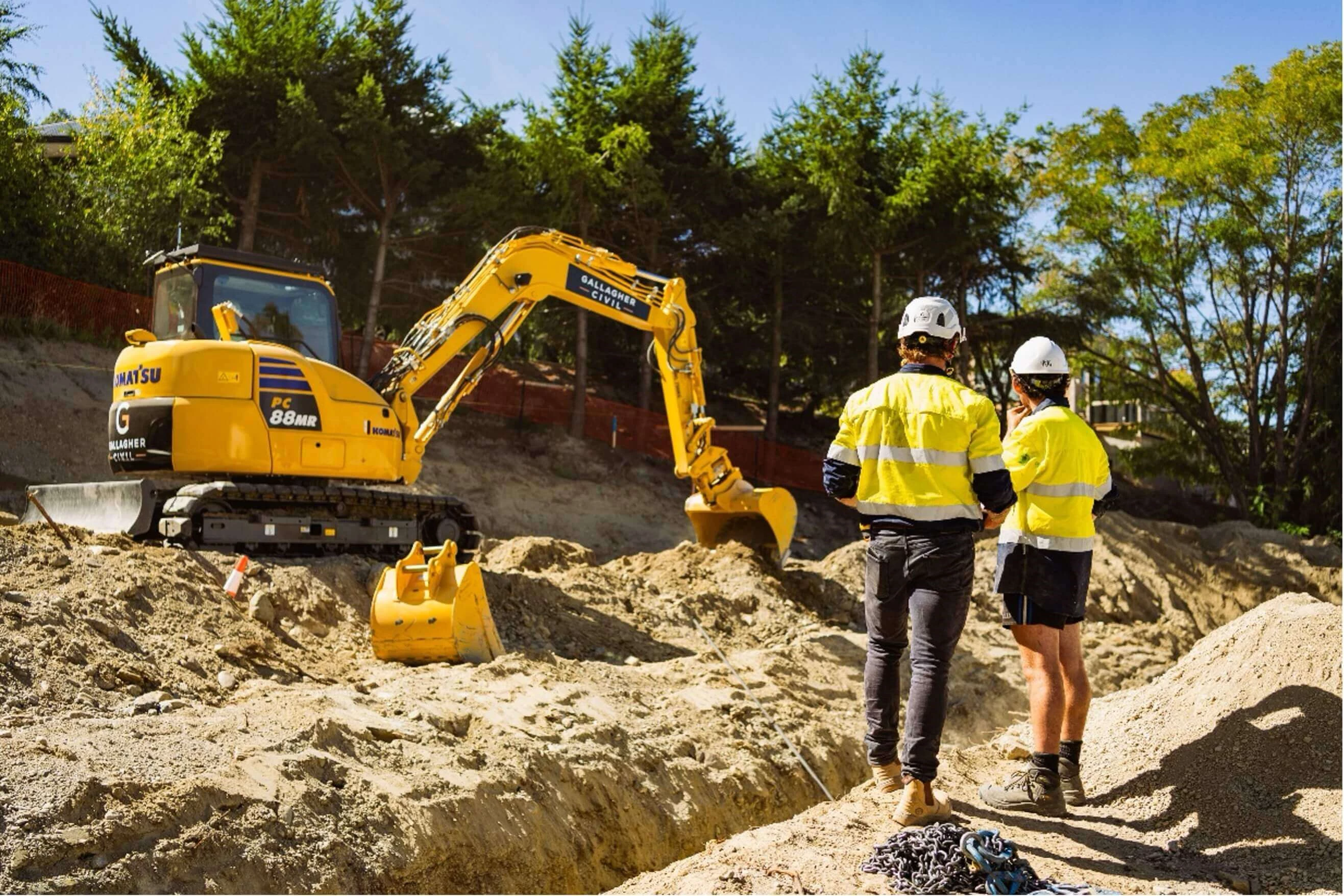The results are in. The 2024 Construction Industry Survey, conducted in partnership with Civil Contractors New Zealand, has just been released, providing a revealing look at the current state and future of civil construction across the nation. As the industry navigates challenges like a lack of work, uncertain project pipeline, and rising costs, one thing is clear: technology is the way forward. Here’s our take on what the survey results mean for your business and the industry at large.
Download Report
Technology: The catalyst for transformation
In an industry responsible for constructing and maintaining New Zealand’s essential infrastructure – everything from roads, bridges and railways to power stations, water treatment plants, and telecommunications networks – technology has become the key driver of efficiency. Globally, there is a growing trend among civil construction businesses toward embracing innovations such as telematics, machine control, health and safety monitoring, quality management systems, and more. These technologies are fundamentally transforming how projects are managed and executed.
But this technological shift comes at a critical time. The 2024 Construction Industry Survey reveals that confidence in the industry’s outlook has plummeted, with only 20 percent expressing confidence in the current outlook, down sharply from 34 percent. The future pipeline of civil construction work also looks bleak, with just 21 percent of businesses expressing confidence, a significant drop from previous years.
Amidst these challenges, technology offers a pathway to resilience and growth. It’s no longer about just getting the job done – it’s about doing it safer, faster, and with greater precision.
The survey reveals the major challenges the civil construction sector is currently grappling with. The primary challenge is now the severe lack of work, reported by 64 percent of businesses, a stark increase from 29 percent. Rising compliance costs and difficulties with procurement guidelines are also placing further strain on the industry. In this context, technology becomes a strategic asset.
For instance, the increased use of cost management technologies – up to 67 percent from 59 percent last year – demonstrates how businesses are turning to digital solutions to manage tighter budgets and unclear project pipelines.
Similarly, the adoption of location tracking, which has jumped from 53 percent in 2023 to 72 percent in 2024, highlights the growing importance of real-time data in managing logistics and ensuring project timelines are met. These technologies are helping businesses mitigate risks, reduce cost overruns and improve overall project outcomes – whether that’s on a large-scale infrastructure project like a new airport or a critical civil defence initiative like constructing seawalls.

Discussing the next step. Photo courtesy of Patrick from Gallagher Civil Limited, at Wanaka.
Building resilience through sustainability
Incorporating renewable energy and eco-friendly materials such as solar panels, wind turbines, and sustainable building materials into infrastructure projects is now standard practice for many construction companies.
As New Zealand moves towards a greener future, with around 80-85 percent of its electricity generated from renewable sources, the civil construction sector is key to cutting down fossil fuel use. The survey shows a rising interest in future energy trends, with 26 percent of businesses looking into hydrogen. For construction companies, this shift is a chance to improve efficiency and align with global sustainability goals, positioning themselves as pioneers in green construction.
A data-driven approach
The survey’s findings make it clear that the future of civil construction lies in data-driven decision-making. With nearly two-thirds of businesses (62 percent) now recognising the importance of onsite technology for securing contracts, it’s evident that technology is a necessity. Moreover, 39 percent of organisations now mandate specific technologies for bidding on projects, reflecting the industry’s shift towards a more tech-savvy approach to procurement.
For civil construction businesses, this means that adopting and integrating these technologies into everyday operations is crucial. Whether it’s using technologies for railway maintenance or managing assets in energy projects, leveraging data effectively will set leaders apart from the rest in the coming years.
Embrace the future
The 2024 Construction Industry Survey provides valuable insights into the current state of civil construction in New Zealand, and the message is clear: technology is one of the keys to future success. Against a backdrop of declining confidence and a shrinking work pipeline, technology can help businesses stay competitive and come out stronger. Those who embrace innovation, use data effectively and invest in advanced technology will be the ones to thrive.
Now is the time to assess your operations and see how these technological trends can help future-proof your business. The future of civil construction is here – will you lead the charge?
Check out the full report and our interactive dashboard for a deeper dive into the survey findings.
Download Report Interactive Dashboard View the Press Release
